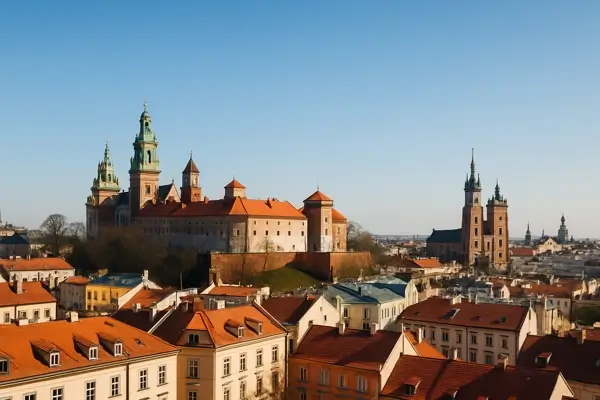
Heart of Central Europe – Poland is located in Central Europe and shares borders with seven countries, making it a vital cultural and historical crossroads.
Rich and Resilient History – Poland has a complex history of invasions, partitions, and rebirth, having disappeared from the map for 123 years before regaining independence in 1918.
Warsaw – A Rebuilt Capital – Warsaw, Poland’s capital, was nearly completely destroyed during World War II, but was meticulously rebuilt, including the Old Town, now a UNESCO World Heritage Site.
Home to Many Nobel Laureates – Poland is the birthplace of several Nobel Prize winners, including Marie Curie (Physics and Chemistry) and Wisława Szymborska (Literature).
Wieliczka Salt Mine – This UNESCO-listed salt mine near Kraków features underground chapels, sculptures, and tunnels carved from salt, some dating back to the 13th century.
Delicious Traditional Cuisine – Polish cuisine is hearty and flavorful. Must-try dishes include pierogi (dumplings), bigos (hunter’s stew), and żurek (sour rye soup).
Auschwitz – A Site of Remembrance – The Auschwitz-Birkenau Memorial and Museum near Oświęcim stands as a powerful reminder of the Holocaust and is one of the most visited historical sites in Europe.
Białowieża Forest – Europe’s Last Primeval Forest – This ancient forest is a UNESCO World Heritage Site and home to the rare European bison, Europe’s heaviest land animal.
Polish Language and Identity – Despite historical occupation, Polish culture and language remained strong and are central to national identity.
Vibrant Cultural Life – Poland has a thriving arts scene, with famous traditions in classical music, folk dance, and film, including legendary composer Frédéric Chopin, who was born in Żelazowa Wola.
